POKSAMAS Waste Management Group of Medan Mas Village in Kubu Raya Regency, West Kalimantan, was formed in 2021 as a response to waste problems in the village, especially during the COVID-19 pandemic which increased the household waste production. The initiative came from the community who are concerned about the environmental impact of littering habits, especially littering the rivers which are considered illegal. Dumping the waste into the river not only pollutes the environment, but also poses a great risk of flooding and potentially harms the local community.
This group is dominated by housewives who are aware of environmental protection. Their movements are to manage the waste wisely and turn the household waste into useful stuff. The collected waste, both organic and inorganic, is processed independently into products with economic value. With proper management, this activity not only helps reduce the volume of waste that ends up in the environment, but also provides additional income for group members and has the potential to strengthen the local community’s economy.
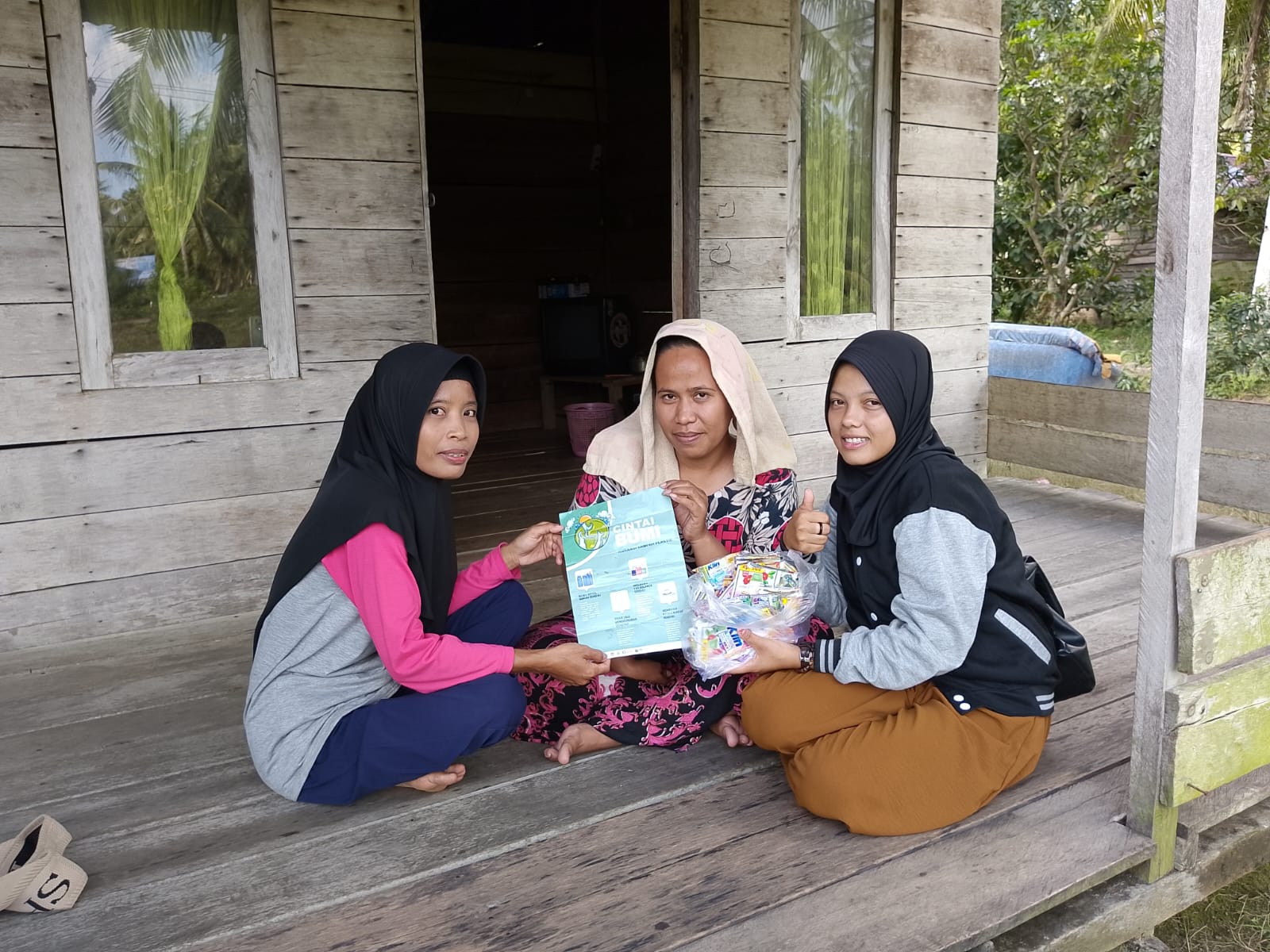 Figure 1. POKSAMAS members were collecting plastic waste from house to house
Figure 1. POKSAMAS members were collecting plastic waste from house to house
The most waste produced in Medan Mas Village comes from household, such as plastic packaging.POKSAMAS collects the waste by regularly visiting the houses around the village.. Besides the waste collection, they also provide counseling on waste management to the community. POKSAMAS explains the importance of proper waste management, including how to separate organic and inorganic waste.
The counseling resulting positive impact, the community becoming more aware of the adverse effects of waste on the environment and committed to work together in waste management. Now, the community are skilled in sorting the waste, and categorizing the recyclable and non-recyclable waste. This has made the waste management process easier for POKSAMAS.
POKSAMAS has utilized technology and social media for communication purposes in the collecting process. Information on waste collection schedules and education on sustainable waste management is disseminated through social media platforms such as WhatsApp and Facebook. This allows people who do not have time to attend direct counseling to still get the information they need.
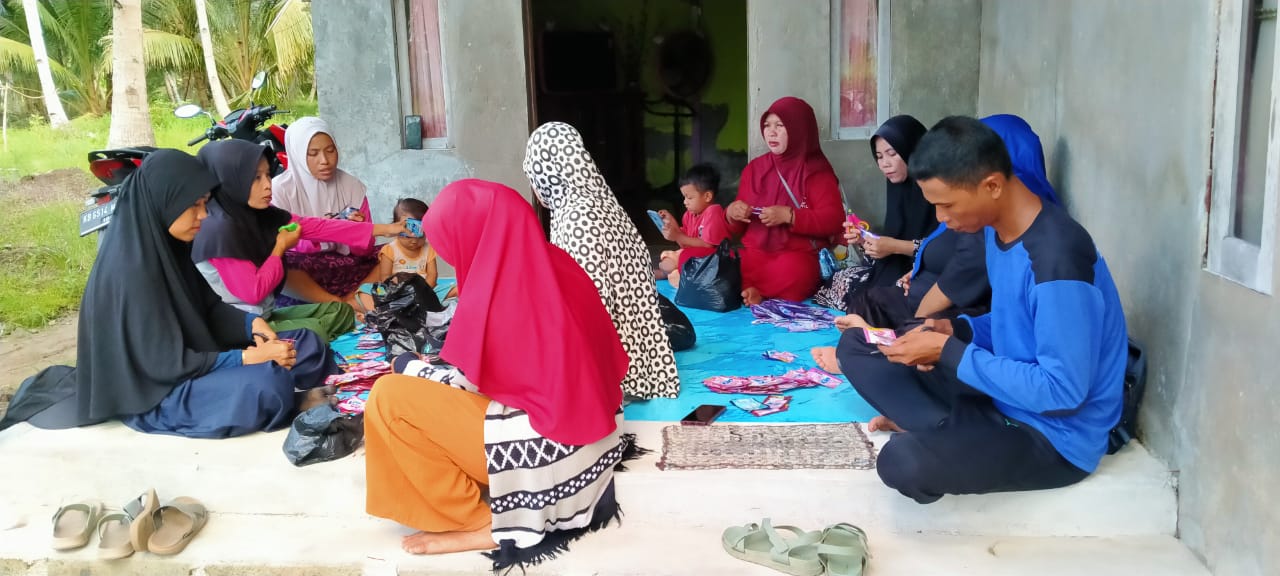 Figure 2. The practice of making handicraft products with the community
Figure 2. The practice of making handicraft products with the community
To encourage active participation, POKSAMAS provides attractive incentives for those who collect the most waste. Prizes in the form of souvenirs or handicraft products made from recycled waste become a special attraction for the community. This program succeeded in creating additional motivation for residents to actively participate, while increasing collective awareness of the importance of protecting the surrounding environment from waste problems.
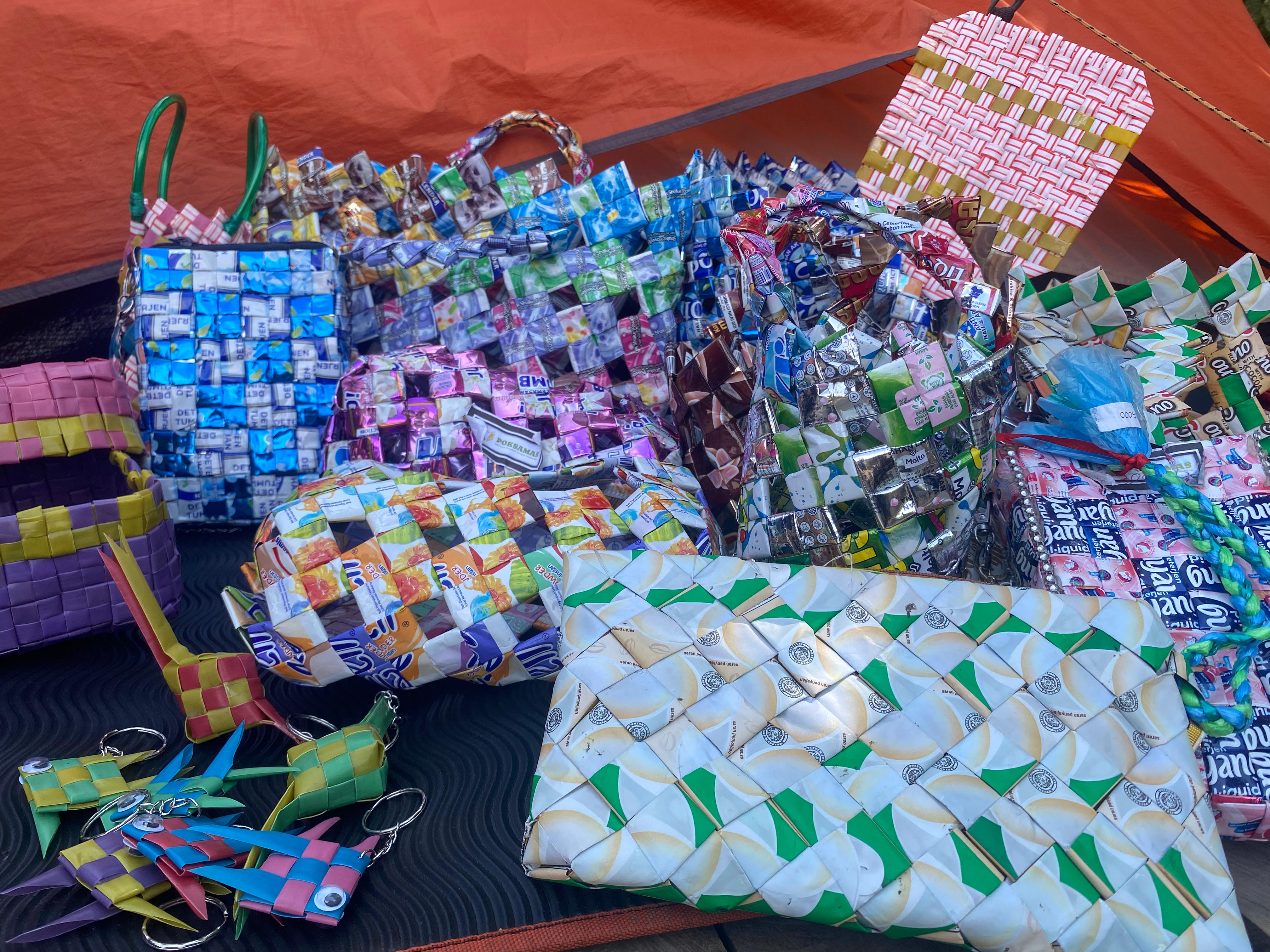 Figure 3. POKSAMAS products
Figure 3. POKSAMAS products
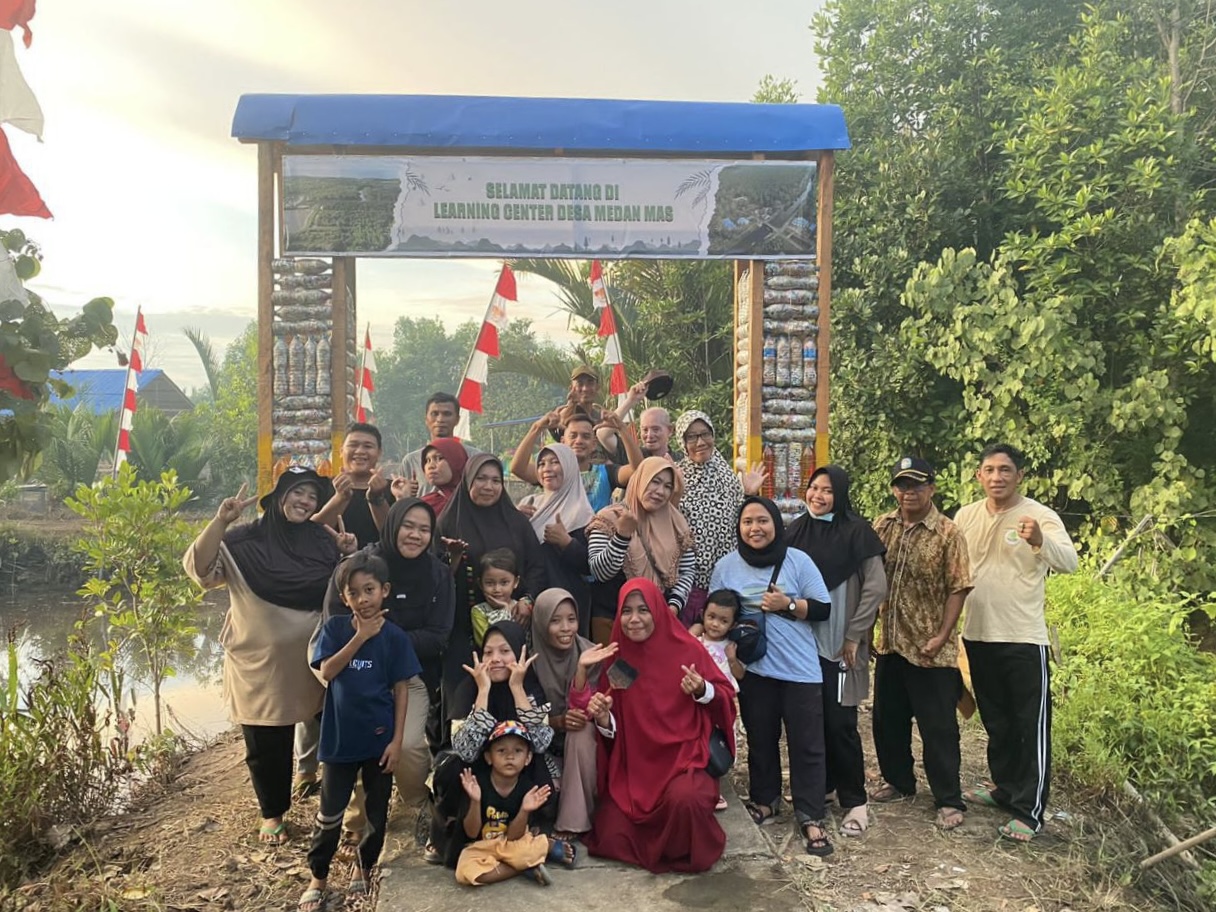 Figure 4. Village boundary gate made of ecobricks
Figure 4. Village boundary gate made of ecobricks
Some of the handicraft products produced by the women members of POKSAMAS include key chains, bags, tissue boxes, baskets and handmade fans. These products are not only intended for local consumption in Medan Mas Village, but have also been promoted in various events in Pontianak, introducing their work to a wider audience. Participation in such events provides an opportunity for POKSAMAS to expand its network and raise public awareness of the importance of waste management through economically valuable recycled products. As for some types of waste that cannot be made into craft products, POKSAMAS processes them into ecobricks.
However, despite this progress, the group still faces a number of challenges. One of them is the lack of raw materials. Indah, one of the members of POKSAMAS, explains that it has become more difficult for them to obtain the appropriate materials for each product. “It’s getting harder and harder to get materials,” she said.
This challenge needs wider cooperation between the community and POKSAMAS to ensure the sustainability of this waste management program. Support from various parties, such as increased community participation in sorting waste as well as support from the government and private sector, is expected to address these issues and help POKSAMAS continue to grow.
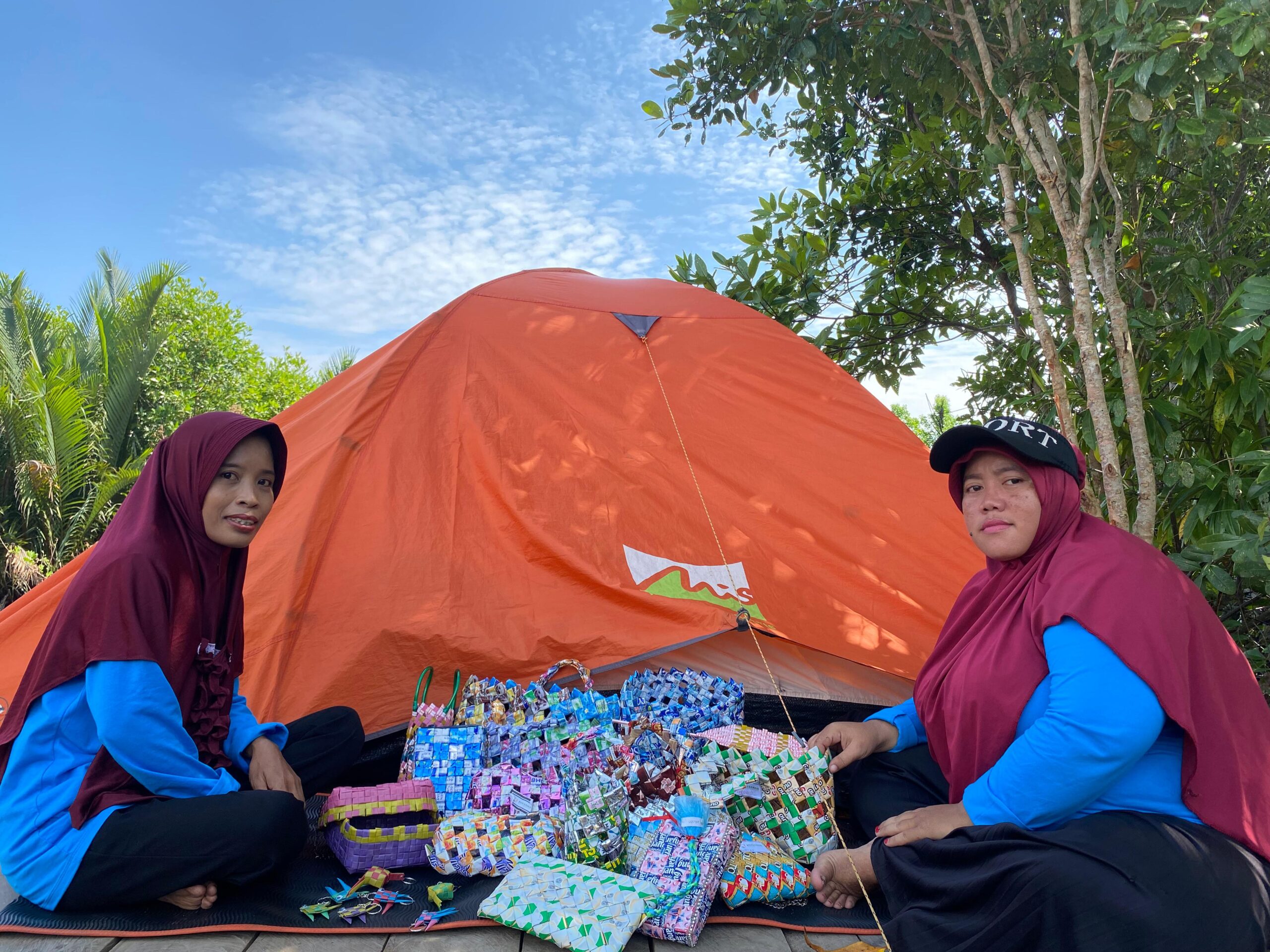 Figure 5. POKSAMAS members Ms. Indah and Ms. Iin
Figure 5. POKSAMAS members Ms. Indah and Ms. Iin
For further action, POKSAMAS has integrated recycled craft making into lessons at local schools. The program is designed to teach children on how to create products from certain types of waste. For example, to make one bag, a similar type of plastic waste is needed, so the process of collecting materials often takes extra time and effort to turn it into economically valuable items. Through this approach, it is hoped that awareness and concern for the environment can be started from an early age. Children not only learn the basic concepts of waste management, but also directly participate in the creative making process into various craft products.
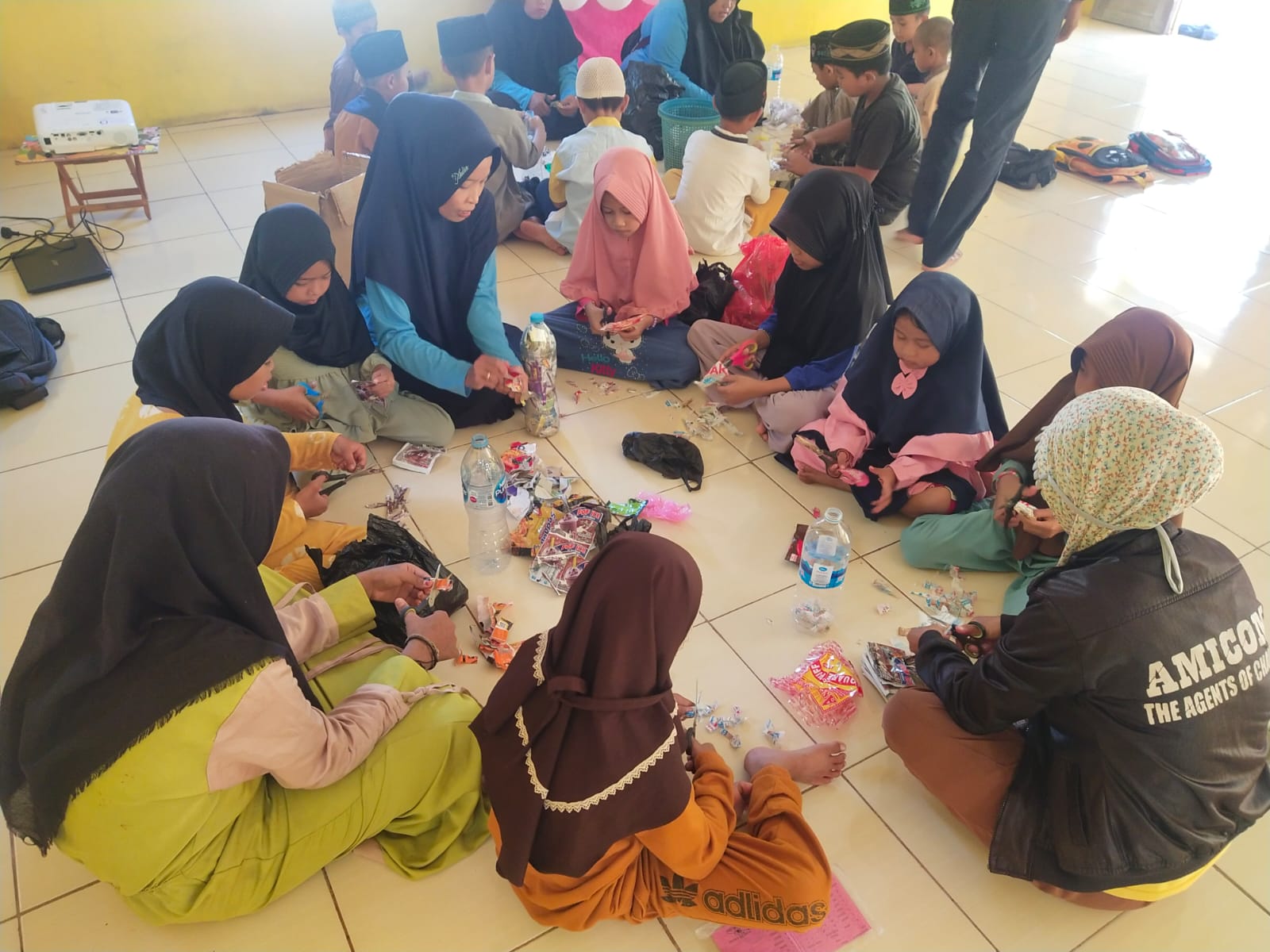 Figure 6. Training on making craft products with school children
Figure 6. Training on making craft products with school children
This activity began in 2023, when POKSAMAS received invitations from several schools in Medan Mas Village and surrounding areas to conduct socialization and training. “Since 2023, we have been invited to schools for socialization, teaching children on how to manage the plastic waste,” said Ibu Iin, one of the POKSAMAS members. Both teachers and students were enthusiastic with the new knowledge and new insight, it also encourages students to play an active role in keeping the environment clean. Thus, this initiative not only improves children’s skills, but is also expected to create a generation that is aware of environmental issues in the future.
Although the crafts produced by POKSAMAS members still need more improvement, they still show optimism and enthusiasm to continue to evolve. Skills and manufacturing techniques have been overcome by the self-learning process. Iin, however, admits that this method of learning is not enough to produce higher quality products. “We learn from YouTube videos only, so the results are not very neat. It would be better if we could attend training to learn and create new innovations on designs,” she said.
The need for capacity building encourages POKSAMAS members to continue looking for more training opportunities. By attending training, they hope to improve their skills in processing waste into better products and creating new designs that are more attractive and higher selling value. In addition, the training is also expected to provide a deeper understanding of marketing techniques and product development, so that POKSAMAS can further develop and provide greater benefits to the local community.
With consistent passion and effort, POKSAMAS proves that environmental problems can be solved through collaboration, creativity and cooperation with the community. Through innovative waste management initiatives, they have not only managed to turn waste into economically valuable products, but have also slowly brought a positive impact on the environmental awareness of the local community. This initiative has encouraged the community to be more concerned about waste management, reduce the habit of littering, and encourage the habit of sorting waste from the houses.
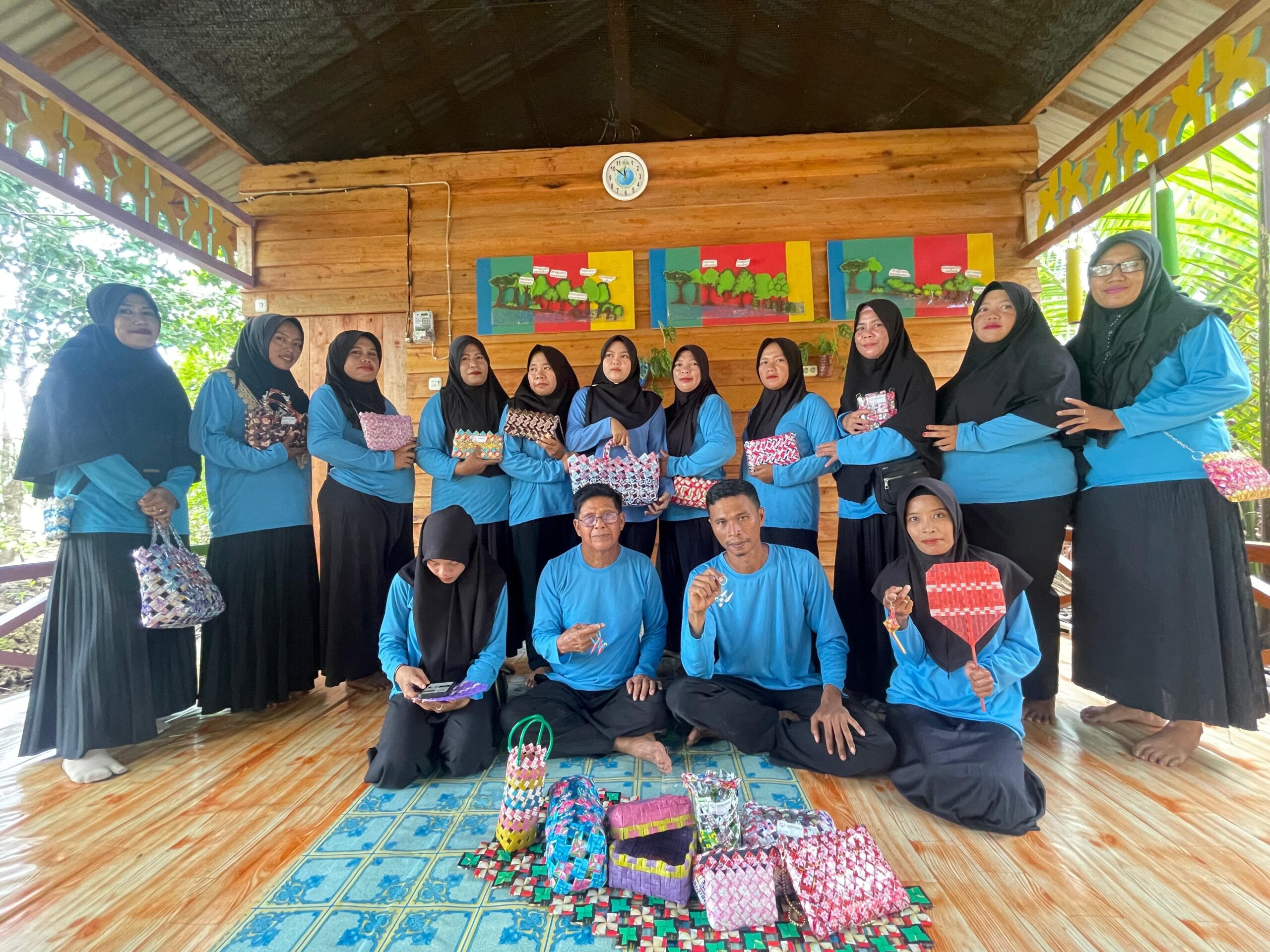 Figure 7. POKSAMAS members
Figure 7. POKSAMAS members
More than just creating products from recycled materials, POKSAMAS also acts as an inspiring agent of change. They prove that with the synergy between the community, waste management programs can be run sustainably, while providing economic and environmental benefits. The success of POKSAMAS is a clear example of how local communities can take action to solve environmental problems and create bigger changes in people’s mindset and behavior.
